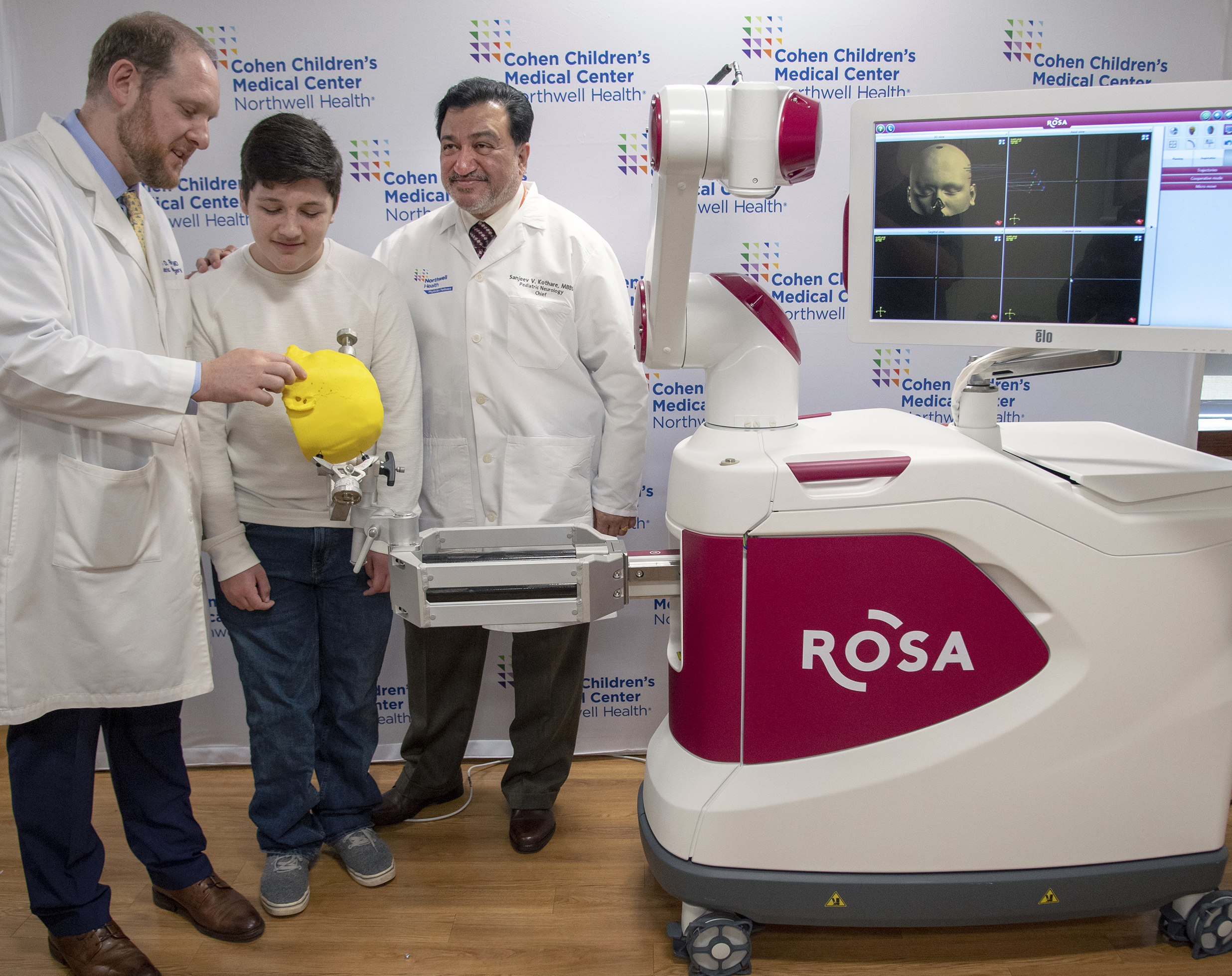Louis Clappi, who turned 14 on March 5, had an experience which very few young men can relate, he held an exact 3D model of his skull while neurosurgeons at Cohen Children’s Medical Center explained how an $850K robot helped them treat his debilitating seizures.
Louis dealt with a serious bout of the flu last January. One week later, fully cured and hanging out with his brother, he suddenly began to seize. The seizing intensified; Louis’ worried parents brought him to Cohen to be evaluated by Dr. Sanjeev Kothare, chief of pediatric neurology.
“After evaluating Louis, we realized that he was living with refractory seizures, which cannot be controlled by medication,” said Kothare, who spent much of the last year working closely with the family. “I also thought he would be an excellent candidate for the ROSA brain robot, which is how the family came under the care of Dr. Rodgers.”
The ROSA Brain robot is a surgical navigation and positioning system using robotic technology that allows surgeons to place electrodes, which detect seizures in the brain, without having to open a patient’s skull. Currently, Cohen is the only facility on Long Island that uses ROSA technology; Louis was the first patient to receive this treatment here.
“ROSA is especially helpful in cases such as Louis’, in which we need to determine the exact source of the seizures,” said Dr. Shaun Rodgers, the neurosurgeon who works with this groundbreaking technology.
“On Feb. 25, we connected a 3D model of Louis’ head, which was created at Northwell’s bio-engineering lab, to ROSA,” said Dr.Rodgers. “Using seizure data gleaned from Louis’ stay in the hospital, ROSA’s arm was able to guide us to the precise spot where holes needed to be drilled in his skull for the implantation of electrodes.”
Previously, implantation of electrodes could only be achieved by removing part of the patient’s skull; the use of ROSA’s arm allows the surgeon to drill small holes into the exact location of the seizures.
“By eliminating the need for a more traumatic surgery, patients like Louis can heal more quickly, with less chance of infection or other surgical complications,” said Rodgers.
It will take a couple of weeks to completely evaluate all the data provided by ROSA’s precise examination, doctors said. At that time, they will be able to formulate a more comprehensive treatment plan.
Louis’ emotional parents, Joann and Robert, were also on hand to “meet” ROSA and to thank the surgeons whose use of the latest technological advances will hopefully provide a future for Louis with less medication and fewer if any symptoms.
“We’re so grateful to the doctors here at Cohen for telling us about ROSA,” said Ms. Clappi. “It was not a decision we entered into lightly, and now we are so happy with our son’s treatment here. We’re looking forward to the day when things are easier for Louis. He’s a wonderful son, a great brother…he’s our hero.”



